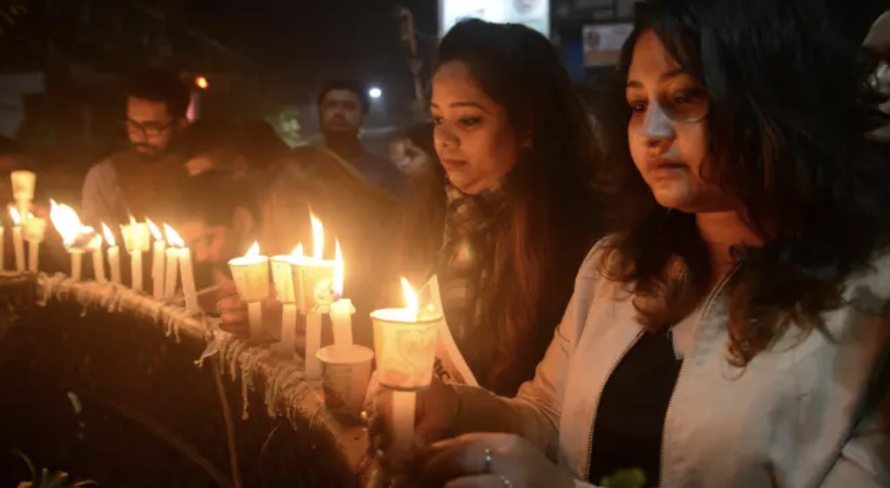After a relative lull that was punctuated by a handful of small terror attacks and military exercises along the line of control in divided Kashmir in 2018, tensions between South Asia’s two nuclear armed neighbors – India and Pakistan – are escalating once again in the wake of a suicide car bombing that killed 44 Indian paramilitary police officers in the restive border region, the deadliest attack in the three decades of insurgency in Kashmir.
According to the Financial Times, the relationship between the neighboring countries grew increasingly strained over the weekend as India contemplated a military response to the attack, carried out by Pakistani terrorist group Jaish e-Mohammad, a group that India believes has long had at least the tacit support of the Pakistani military. In a sign that the region could be headed for a reemergence of the tit-for-tat attacks that punctuated the early years of the administration of Indian Prime Minister Nahrendra Modi, India stripped Pakistan of its most favored nation status after the attack, leading to an immediate 200% tariff hike.
Already, Indian military sources told the FT that Modi – who is facing a close election in the coming months, and is likely seeking to burnish his hardline Hindu nationalist credentials – is considering whether to order “stand off” strikes that would involve deploying fighter jets to fire missiles into the Pakistani-controlled side of Kashmir, as Modi has vowed to “avenge every tear” shed after last week’s attack. Analysts have said he will be feeling pressure to push for a military response.
In a series of public speeches while inaugurating a new public works project before upcoming parliamentary elections, Narendra Modi, India’s prime minister, continued to express fury at last week’s attack. He vowed to “avenge every tear” and said that India’s military had been given a free hand to decide on an appropriate response.
“The fire that is raging in your hearts is in my heart too,” Mr Modi told a huge crowd in Bihar on Sunday. The previous day, Mr Modi declared that “how, when, where and who will punish the killers and their promoters will be decided by our forces, who are capable of dealing with the situation.”
Indian security forces are reportedly considering potential responses, including “stand-off” strikes which involve using air force planes to fire missiles into Pakistani-held territory from across the line of control that divides Muslim-majority Kashmir between the two countries.
Meanwhile, Pakistani officials have been working with western powers to try and convince them to restrain India. But with the US’s relationship with Pakistan also in a state of deterioration under the Trump administration, it’s unclear exactly how effective those efforts will be. In a tweet sent over the weekend, NSA John Bolton warned that Pakistan “must crack down on JeM and all terrorists operating from its territory.”
I expressed condolences to NSA Doval yesterday for the reprehensible terrorist attack on India. Pakistan must crack down on JeM and all terrorists operating from its territory. Countries should uphold UNSC responsibilities to deny safe haven and support for terrorists @nsaajit
— John Bolton (@AmbJohnBolton) February 16, 2019
New Delhi has accused Pakistan of providing JeM with “full freedom” to operate, and is demanding that the government in Islamabad take immediate and “verifiable” steps to crack down on the group. Pakistan, meanwhile, has denied any responsibility and instead blamed the attack on Indian intelligence lapses.
Analysts have warned that the situation is tense and risks “dangerous escalation”.
“He is basically promising a pretty significant retaliatory strike,” said Vipin Narang, professor of political science at the Massachusetts Institute of Technology. “All the signs are that they are considering some sort of stand-off strike from across the LOC into Pakistani targets. The risk is that Modi miscalculates how far he can go without provoking a significant Pakistani response.” Pakistani troops are on a heightened state of alert along the de facto border even as a senior Pakistani foreign ministry official said diplomats were lobbying western countries to “restrain India from a military offensive.”
It’s worth remembering that, should a military conflict break out between the two neighboring powers, it could quickly escalate to nuclear war. Because while India has pledged never to use its nuclear weapons in a first strike response, Pakistan’s military doctrine states that it wouldn’t hesitate to use tactical nuclear weapons if attacked by India, which enjoys far superior conventional firepower.
And with the US increasingly unsympathetic to Islamabad, it would be presumably fall to China and Russia to ensure peace in the region.
via ZeroHedge News http://bit.ly/2tu6vQK Tyler Durden
